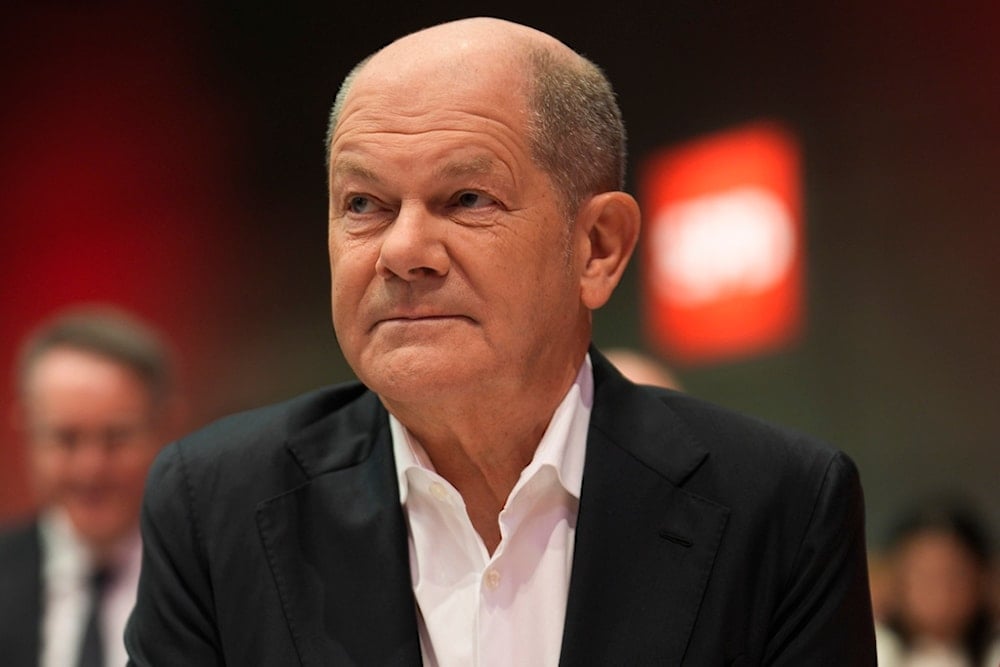Scholz defends sovereign borders amid Trump's Greenland comments
US President-elect Donald Trump sparked alarm bells on Tuesday when he refused to rule out military intervention over the Panama Canal and Greenland, both of which he has said he wants the US to control.
-

German Chancellor Olaf Scholz attends a special party convention in Berlin, Germany, Saturday, Jan. 11, 2025(AP Photo/Markus Schreiber)
German Chancellor Olaf Scholz said Saturday that the principle of sovereign borders must be protected, days after US President-elect Donald Trump refused to rule out force to seize Greenland.
Speaking to a congress of his Social Democrat party ahead of a general election next month, Scholz said: "The principle of the inviolability of borders applies to every country, regardless of whether it's in the East or the West," referring also to Russia.
"This is a principle that every state must abide by, whether it's a small state or a big and powerful one," he said.
"No country is the backyard of another, no country should have to fear its bigger neighbours. That is a central part of what we call Western values."
Read more: Scholz rejects Trump's bid to raise NATO defense spending to 5% of GDP
Trump sparked alarm bells on Tuesday when he refused to rule out military intervention over the Panama Canal and Greenland, both of which he has said he wants the US to control.
That prompted Scholz to tell a hastily called press conference on Wednesday that Trump had caused "notable incomprehension" among EU leaders.
Europe confronts US provocations
On Friday, Le Monde published an editorial detailing mounting political and ideological challenges Europe faces from Donald Trump and tech leaders like Elon Musk and Mark Zuckerberg.
Musk has launched politically charged campaigns targeting European governments, while Trump reignited his controversial ambition to acquire Greenland, and Zuckerberg criticized EU regulations on freedom of expression.
These actions have unsettled European leaders, prompting calls for a stronger defense of sovereignty, democratic principles, and territorial integrity against external pressures.
Le Monde concludes that Europe must demonstrate resolve, reminding its western allies that interference in its internal affairs will not be tolerated.
As Le Monde aptly states, "sending Elon Musk and Mark Zuckerberg back to their nets is a way to signal to Donald Trump that the hunt is not open in Europe."
Read more: Elon Musk's influence stirs up European politics: WSJ

 2 Min Read
2 Min Read








